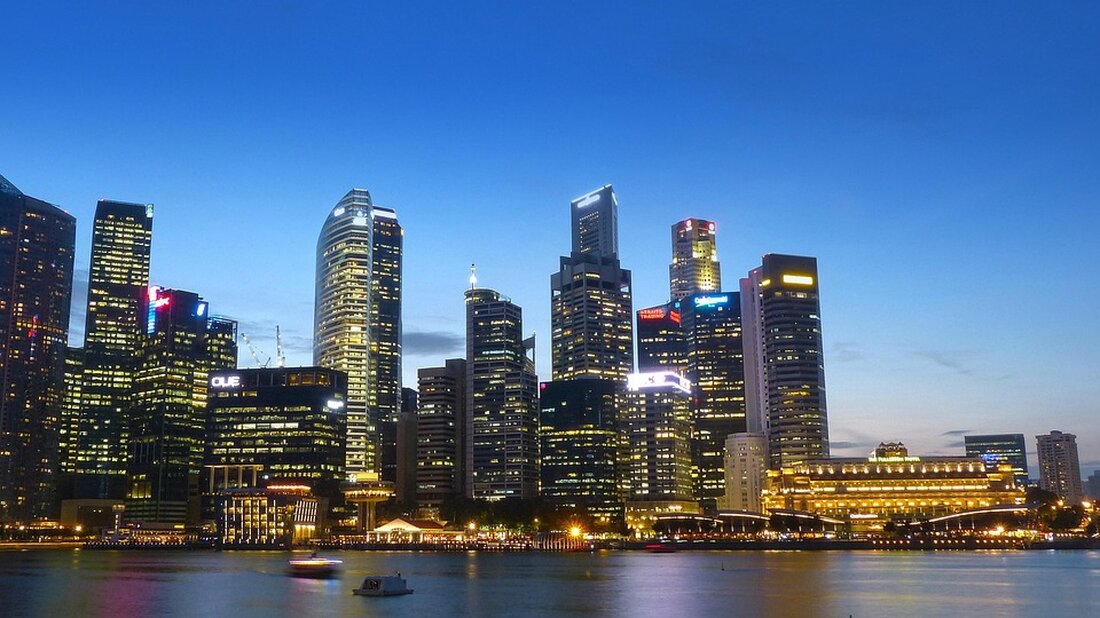Singapore votes: test of ruling party's power
Singapore votes in a significant test of the People's Action Party's political dominance. Will voters vote for the new Prime Minister Wong? The results could shape the future of the opposition.

Singapore votes: test of ruling party's power
Singapore faces an election on Saturday that is likely to cement the People's Action Party's (PAP) unbroken rule. This is a test of public approval of their new prime minister as the city-state braces for economic turmoil resulting from a global trade war.
An indicator of the popularity of the PAP
The election is seen as an important indicator of the popularity of the PAP, which has been in power since Singapore gained independence in 1965. What is particularly interesting is whether the opposition is able to challenge the ruling party's tight control and make further inroads after small but unprecedented gains in the last election.
Voters and mandate strength
Although the PAP typically triumphs in elections with around 90% of seats, its share of the vote is closely watched to gauge the strength of its mandate. Prime Minister Lawrence Wong is keen to improve the PAP's 60.1% result in the 2020 election - one of the worst performances in the party's history.
The new Prime Minister and his vision
Wong, 52, became the Asian financial hub's fourth prime minister last year and is promising continuity, fresh blood and his own leadership for Singapore. He took office at the end of the two-year term of Lee Hsien Loong, the son of former prime minister Lee Kuan Yew, who is considered the founder of modern Singapore.
Important issues for voters
Polls open at 8 a.m. and close at 8 p.m. (8 a.m. ET), with results expected in the early hours of Sunday. The cost of living and housing availability in one of the world's most expensive cities are key issues for the 2.76 million voters and a continuing challenge for Wong. His government has warned of a recession if the trade-dependent economy is damaged in the trade conflict with high US tariffs.
An unequal competition
The PAP has long had a political advantage, having a large membership base, influence in state institutions and far greater resources than its untested opponents. The election will be unequal as 46% of all candidates belong to the PAP, which is fighting for all 97 seats, while its main rival, the Workers' Party, is seeking just 26 seats. In the last election, Labor won ten seats, the most by an opposition party.
Potential for change in Singapore politics
Although a PAP defeat is extremely unlikely, some analysts say the election could change the dynamics of Singapore's political landscape in the coming years as the opposition gains ground. Younger voters are interested in alternative voices, greater control and more lively debate.
Voter expectations
“It is expected that overall voter support will gradually decline from election to election,” said political scientist Lam Peng Er of the National University of Singapore. "Would Singaporeans be surprised if the PAP's voter support fell to 57% or 58%? Nobody would be surprised. I don't think it would even surprise the PAP."
The consequences of losses for the PAP
The PAP, for its part, wants to avoid surprises and warned voters of the consequences of losing seats for key Cabinet members, who Wong said are crucial to balancing US-China relations and navigating Singapore's highly exposed economy through potentially stormy waters. "I have backup options... sure. But everyone knows the team can't function at the same level," Wong told the union's 1.4 million members on Thursday.

 Suche
Suche
 Mein Konto
Mein Konto
